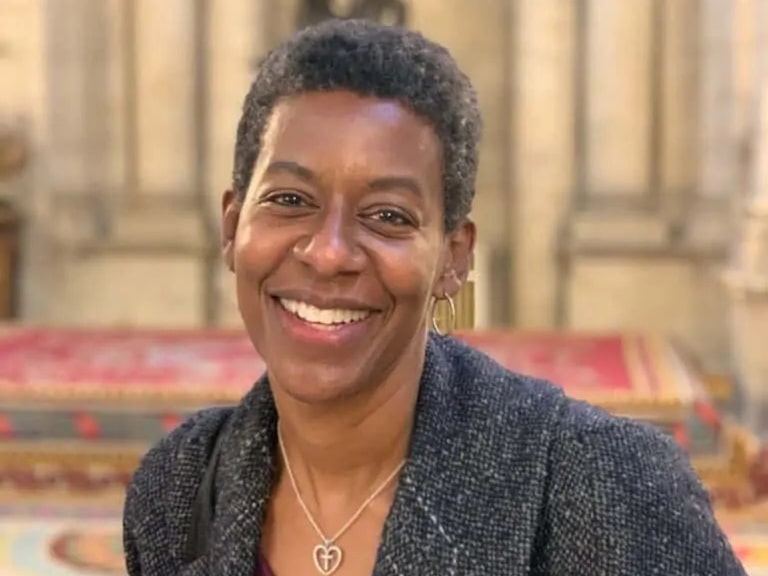
Carmen Wright is the first Black woman to graduate with a Ph.D. in chemical engineering from UT Austin. We sat down with Wright to learn more about her other “firsts” and how she encourages others to not let being the first deter you from reaching your goals, to let your idea of success evolve and change as life evolves, and to enjoy the journey rather than solely focusing on the end goal.
Carmen Wright is the first Black woman to graduate with a Ph.D. in chemical engineering from UT Austin. We sat down with Wright to learn more about her other “firsts” and how she encourages others to not let being the first deter you from reaching your goals, to let your idea of success evolve and change as life evolves, and to enjoy the journey rather than solely focusing on the end goal.
Wright received her B.S. in chemical engineering from Virginia Tech and interned at Union Carbide for two summers, where she worked with engineers and scientists in the research lab. The opportunity to work with Ph.D. holders, being in the lab and enjoying that experience, made her think, “Yeah, I can see myself doing this.”
What did you love most about your Ph.D. experience?
The community at Texas ChE was fabulous. It was very supportive and social, and there was little competition when we were studying for qualifying exams. Everyone was friendly and helpful to one another, and the professors were accessible and easy to talk to.
I also enjoyed being around people who had a passion for learning. Even as a teaching assistant and tutor for some undergrad classes, I noticed that they really wanted to learn. They weren’t asking for answers, but rather for explanations of concepts. It’s fun to help people like that.
What do you think is the most valuable thing that your Ph.D. experience gave you for your life or career?
It taught me two things: humility and perseverance. People often say to me, ‘Oh, you have a Ph.D., you must be really smart.’ That’s not it at all. I saw lots of smart people come and go; it is about humility. As a Ph.D. student, you are trying to study something new, something that’s never been examined before. The more you learn, the more you recognize all the things you don’t know.
Every question you answer leads to so many more questions. This process gave me a perspective on how small my field of expertise was, and how much I had yet to discover.
You had to learn to approach everything with humility. This also applies more broadly. In life, it’s best to avoid believing, ‘I know everything.’
Secondly, the people who did succeed were the ones who learned to persevere. There are hard days, bad days, and days when none of your experiments succeed. Feeling like you’re making no progress can be frustrating, but you can’t give up. You go back in the lab, try something different, read more, and you just keep going until you finish.
That’s why I mentioned before that community is so important. At Texas ChE, there’s a community that supported me through the difficult periods of my graduate work.
